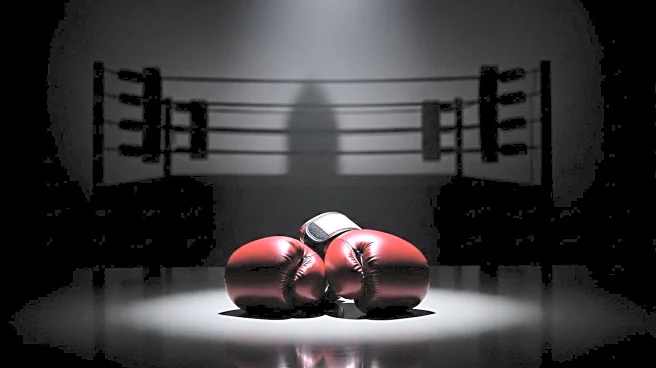What's Happening?
Ricky Hatton, a celebrated British boxer and former world champion, has died at the age of 46. The World Boxing Association confirmed his passing on Sunday. Hatton was found unresponsive at his home in Greater Manchester, England. The police were alerted by a member of the public at 6:45 a.m. and have stated that there are no suspicious circumstances surrounding his death. Hatton retired from professional boxing in 2012 after a successful 15-year career, during which he won multiple world titles in the light-welterweight and welterweight divisions. He concluded his career with a record of 45 wins, 3 losses, and 32 knockouts.
Why It's Important?
Ricky Hatton's death marks the loss of a significant figure in the boxing world. Known for his charismatic personality and dedication to the sport, Hatton inspired many fans and aspiring boxers. His career achievements, including world titles in two weight classes, contributed to the popularity of boxing in the UK and beyond. Hatton's passing may prompt reflections on his impact on the sport and the community, as well as discussions on the challenges athletes face post-retirement, including mental health issues, which Hatton openly addressed.
What's Next?
Following Hatton's death, tributes from the boxing community and fans are expected to continue. Manchester City, Hatton's beloved football team, has already held a minute's silence in his honor. The boxing world may organize memorial events to celebrate his legacy. Additionally, his passing could lead to increased awareness and support for mental health initiatives within the sports community, highlighting the importance of addressing such issues among retired athletes.
Beyond the Headlines
Hatton's story underscores the complex journey of professional athletes, including the transition to life after sports. His openness about his struggles with mental health challenges post-retirement sheds light on the need for comprehensive support systems for athletes. Hatton's legacy may influence future discussions on how sports organizations can better assist athletes in managing their mental well-being during and after their careers.








